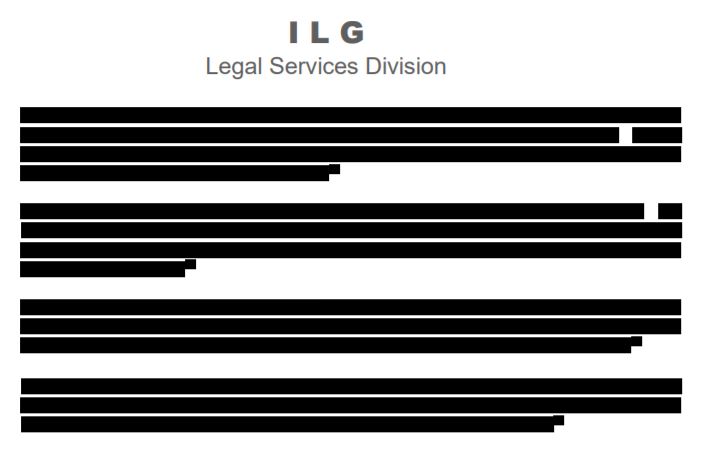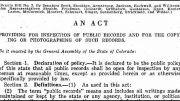By Jeffrey A. Roberts
CFOIC Executive Director
An attorney for The Denver Post and The Denver North Star explained in a new court filing why the news organizations believe Denver Public Schools must unredact hidden portions of an outside investigator’s report on sexual misconduct allegations against school board member Tay Anderson.
“The public has a strong interest in understanding what information in the report urged the members of the school board to take the action to censure” Anderson, wrote Rachael Johnson, a Colorado-based lawyer with the Reporters Committee for Freedom of the Press.
The 96-page Investigations Law Group (ILG) report, issued in September, found that that the most serious allegations against Anderson could not be substantiated, but Anderson’s fellow school board members censured him for flirting with students on social media and making social media posts that could be perceived as intimidating witnesses in the investigation. In a vote of confidence earlier this month, the board chose Anderson to serve as its vice president.

DPS in October asked a Denver District Court judge to determine whether it can release to reporters multiple blacked-out paragraphs of the ILG report, applying a seldom-used provision in the Colorado Open Records Act (CORA). In the lawsuit, the school district claimed it “is unclear whether the unredacted portions of the Report sought by the news agencies is a ‘public record’ under CORA” and “it is unclear whether Director Anderson’s privacy interest would operate to limit access under these specific circumstances.”
Government records custodians under CORA may not deny a request for public records unless a specific exemption in the law permits the withholding of that record. But CORA also lets records custodians seek a judicial clarification if they cannot, in good faith, figure out whether the disclosure of certain records is prohibited.
In determining whether the disclosure of records would cause substantial injury to the public interest by invading an employee’s constitutional right to privacy, a court must consider: (1) whether the individual has a legitimate expectation of nondisclosure; (2) whether there is a compelling public interest in access to the information; and (3) where the public interest compels disclosure of otherwise protected information, how disclosure may occur in a manner least intrusive with respect to the individual’s right of privacy.
Johnson addressed each prong in the newspapers’ filing last Friday. First, she argued, “there can be no legitimate expectation of nondisclosure” concerning alleged unlawful activity. DPS commissioned the investigation, she noted, because the school board believed it was obligated to do so under the state’s Claire Davis School Safety Act and Denver police also investigated the matter (the district attorney’s office declined to file charges).
“Likewise, an individual cannot have a legitimate expectation of nondisclosure of information already available to the public,” Johnson wrote. “A great deal of information about Mr. Anderson’s alleged misconduct is already public. Dozens of news articles, numerous public statements — many made by Anderson himself — and public testimony about those allegations is publicly available.”
The court document also notes that Anderson has filed a defamation lawsuit arising out of some of the same allegations addressed in the ILG report. “By filing the defamation lawsuit, which will be litigated in public, Mr. Anderson cannot now assert that he has a legitimate expectation of nondisclosure of the redacted portions of the ILG Report, which address allegations of sexual misconduct and are directly relevant to (a very) public controversy.”
“In short, Mr. Anderson cannot point to the contents of the Report in a publicly filed lawsuit, claiming that it unequivocally absolves him of any wrongdoing, yet simultaneously urge this Court to shield that very document from public scrutiny.”
As to whether there is a public interest in the redacted portions of the report, Johnson cited the numerous news stories, podcast interviews and social media posts about the allegations against Anderson. “The public has a strong (and legitimate) interest in understanding whether there are any safety concerns with students interacting with Mr. Anderson,” she wrote, and there is also a public interest in evaluating the ILG investigation and assessing “the veracity of Mr. Anderson’s publicly filed claims that the Report completely exonerates him of any wrongdoing.”
The news organizations’ filing also says the news organizations do not object to the redaction of the names or minors or alleged minor victims from the report.
Follow the Colorado Freedom of Information Coalition on Twitter @CoFOIC. Like CFOIC’s Facebook page. Do you appreciate the information and resources provided by CFOIC? Please consider making a tax-deductible donation.




